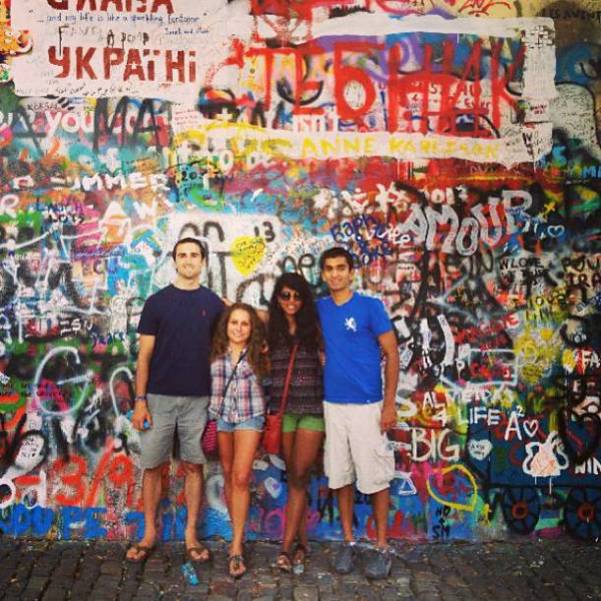Travel Tales from a WAC Intern
Posted: August 15, 2013 Filed under: Czech Republic, Europe, Travel | Tags: Travel Leave a commentEarlier this summer, I was awarded the opportunity to attend a conference in Prague as one of five delegates on behalf of the University of Pittsburgh. Organized by CivicConcepts International, the International Youth Leadership Conference in Prague (IYLC) was truly a cross-cultural experience, as it provided a forum for 50 students from six continents to discuss international topics and leadership issues.
I was personally excited to attend the IYLC because during the course of the conference, we would be participating in three experiential learning simulations: a United Nations (UN) Security Council struggling with the Syrian situation, an International Criminal Court pre-trial chamber hearing on the case of Omar al-Bashir, and a two-day European Parliament session complete with lobbying and amendment writing. I’ve been competing in Model UN conferences for a long time, and I couldn’t wait to test my skills on an international stage.
Overall, this experience reminded me of experiential learning’s importance in education. When you have to argue for and defend a position, especially if that position doesn’t align with your personal beliefs, memorizing facts isn’t enough. You need to know background on the issue, how your position (and everyone else’s) developed over time, and why those who support your position think that way. This preparation takes time: to research, to read, to synthesize enough that you can make your arguments without notes. Leading up to the conference, I cultivated a binder full of articles and dulled a few pencils preparing to the best of my ability.
When I arrived in Prague, I was excited to spend the three days before the start of the conference sightseeing, exploring the city, and taking a break from my IYLC preparations. However, I quickly realized that my companions and I had spent all our time researching the simulations and had neglected preparing for the city. While exploring our surroundings, we saw many architecturally interesting buildings and spectacular views. Unfortunately, we weren’t sure about the significance of anything past its name printed on the map our hostel had provided. The most common dialogue within our group became “That’s pretty, what is it?” “I dunno, just take a picture.”
Once the conference started, I was so thankful that our schedule included guided excursions into the city. We toured embassies and the Czech Senate, and some of our simulations took place in the city. In each of these places, a guide led us on a tour of the facility and provided a historical overview of the building and its significance to the city. On the third day of the conference, we had a reception at the “Dancing House.” When we arrived, I realized it was a building that had stood out to us earlier in the trip – one we had visited without knowing any background. I finally learned the story behind it, and it’s one I’ll never forget.
So even if you don’t have a conference full of people to help you simulate a UN Security Council, you can use principles of experiential learning in other arenas. When traveling, as I have learned, it could be the difference between a photo album full of “cool buildings” and one full of landmarks that remind you of a trip that fostered a deeper cultural and historical understanding of a foreign city.
By Nina Wroniak, World Affairs Council of Pittsburgh Intern


